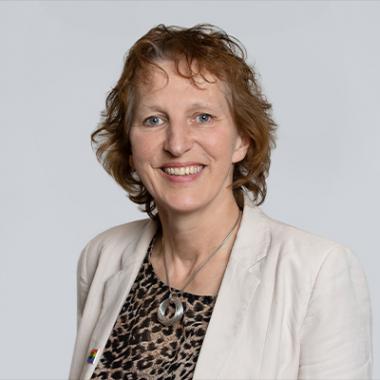In the absence of physical human connection in pubs, workplaces, houses and restaurants it is amazing to see the other connections we are all building.
Family Zoom quizzes, film nights, check ins with old friends, nostalgic pictures put on Facebook and Instagram. The instinct for connection is very strong and as the physical world has shrunk to our houses and gardens (if we are lucky enough to have them), the digital one has expanded for all of us.
Even in our working lives, we are finding ways to connect. As a group of senior leaders in higher education we have been connecting for the purposes not only of sharing thoughts and ideas about our institutions but to keep sane and be able to be a bit free in our thinking. The sector has always been very collaborative, even when external forces militate against that. We can see that instinct to work together writ large now in our leadership, research and learning and teaching communities.
Of flesh and blood I’m made
And what have we been talking about? Well, much has been about managing operational change, some has been about the political and regulatory context, quite a bit about scenario planning but the conversations that stick, that keep coming up and rouse our passions, are the human ones related to our students.
We talk about being parents (or friends of parents) and witnessing our kids wondering what next year will bring. We see them beginning to ask about what going to university will now be like. We regret their missed opportunities this year. We feel deeply the emerging unease about the futures for our current students as they are graduate into a ‘new normal’ and enter an uncertain job market.
We understand this unease at the way the world has changed so quickly, challenging them to realise their ambitions in new and unfamiliar ways. The present situation also constrains how new and current cohorts of university learners will engage with their experience. It is going to be very different to our own experiences and they have the right to express their disappointment that some anticipated activities have vanished.
More importantly we have a responsibility to help them find ways to maximise the richness of their new experience.
We’d get tired looking at each other
Of course, many of our students are not UK eighteen-year-olds planning a move away from home. Our student populations are more diverse than ever before: in nationality, ethnicity, age, economic advantage and family circumstance, amongst many other characteristics. And while some of our students do move away from home to come to university, others commute on a daily basis.
For some of our students, starting a university degree isn’t about moving away from a childhood home, but about returning to education later in life. Many students will have thought long and hard about the challenges of balancing their studies with other responsibilities.
That hard work may be even harder now, and universities must, in turn, think hard about the challenges that different groups of students face. We need to think differently and creatively to create new opportunities for them.
The wider student experience
We have also been reflecting on how the wider dimensions of a university experience might change if social distancing remains. Experiences that we enjoyed, many of which are absolutely in the physical domain. Fresher’s week activities; clubs and societies joined; sports teams played in; time spent chewing the fat to the small hours with groups of new friends; volunteering; being in a new place and finding new ways to live in the world. Online platforms and social media allow students to connect but are not a replacement for physical connections and activities that allow relationships to develop.
We want to acknowledge this and reassure students that it’s okay for them to be asking questions about these opportunities. A university education is an intellectual and financial investment, but it’s also a social and emotional investment. The relationships and networks that many of us established in our first few months at university are the ones which sustain us still. It’s natural and right for students to expect that, however excellent online teaching is, we will also concern ourselves with their social connections and help them to develop a sense of belonging in their university, whatever their circumstances.
Students are humans first and we absolutely need to understand how they feel about their current experience. Whilst this moment may be temporary, and it is too early to understand what a new normal will be, the fact that we collectively identify these human interactions as so critical also persuades us that they will endure. They may even be more important to people who have experienced lockdown.
We do not say that “things will go back to normal”, but we should also avoid the excesses of digital enthusiasts who rush towards a future as a place without places. The new digital ways of learning that develop from this situation should enhance, not replace, the physical, and provide students with increased choice in their engagement, to embrace the diversity of our student body.
Our students may tell us we’ve done a good job moving to emergency remote learning, but let’s not mistake that for being what they all want or desire for the long term. Our new ways of being should enhance, not cheapen, the university experience that, in annual NSS surveys, our students tell us so routinely that they hugely value.
Some only have a phone
Moreover, we now understand, perhaps in ways that were invisible to us before (and as some of us have engaged in couriering laptops out to students), how for many of our students, our current online environment depends on the facilities they can only access on campus.
We are prone to seeing our students as digital natives, phones in hand. Yet an appreciable, but perhaps formerly unappreciated, number have only a phone. Once away from campus or moved out from their halls, they have also moved away from the computer equipment and wifi on which much current online provision depends. The sudden shift to online is, for these students, a deprivation of a different sort, with an ongoing anxiety not only about illness, distancing, and an online experience, but about the capacity to have any learning experience at all.
In the ‘new normal’ of 2020-2021 we will need to rethink our own dependency on laptops and unpick some of our assumptions about what digital engagement must mean. What is an equitable online experience and how do we build for it?
First and best
And finally, we have been reflecting on how to work together. As individuals and groups of leaders everywhere work out how to face these challenges, we run the risk of competing over our imperfect responses. Higher education could take a destructive and toxic turn if we all try to solve issues individually. If individual institutions claim “best in class” as they start to publish plans for next year, then others will be forced to respond as the weight of expectation builds up.
We must accept and promote the need for different institutions to take different approaches in the best interests of their students. For example, the “no detriment” demands that swept the sector before Easter were fuelled by a misunderstanding of the significantly different way each university delivers, assesses, calculates and awards classifications. Solutions that help students at one university might not be in their interests in another. We need to be able to explain that all our institutions are finding ways of managing that best to protect the interests of their students, without the development of these differences being seen as angling for competitive advantage.
The spirit of collaboration and support that has characterised our informal group meetings over the last few weeks is a better response than the survival of the fittest. The sector needs to respond collectively and to make a case for financial support on the basis, not only of a broad contribution to the post-viral economic recovery but also, specifically, on how to support our students and recent graduates through this tumultuous time, in order that they are equipped to develop the next generations.
As a sector, we need to communicate honestly with our students and other stakeholders about what next year will bring and, most importantly, to speak with coherence.



















2 responses to “But somehow the vital connection is made”